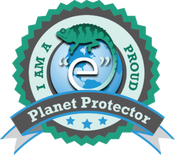|
by Brittany Tofinchio Palmer Colombia’s Ministry of Environment and Sustainable Development is seeking public comments on a draft decree to partially regulate waste electrical and electronic equipment (WEEE). The decree is intended to control the adverse impacts of WEEE on human health and the environment. Electrical and electronic equipment (EEE) applies to all devices with electric currents and electromagnetic fields, and devices that generate, transmit or measure currents and fields. The decree would apply to marketers, WEEE managers involved in collection, transportation, storage, and treatment of WEEE, as well as producers and manufacturers.
The decree would create requirements for producers of EEE to establish a system of collection and environmentally safe management of WEEE either directly or through a third party. Specific minimum requirements for such a system are provided. Marketers would be required to provide certain types of technical and logistical support to producers in collecting and managing the waste, including allowing buyers to deliver the WEEE equivalent of their purchase, free of charge, to the marketer. WEEE managers would have the following obligations: have proper environmental licenses; register as a WEEE Manager; ensure environmental sound management of WEEE; and remove hazardous waste in WEEE. The decree also applies to consumers, making it far-reaching and applicable outside of the commercial sector. While no requirements are provided, it does state that consumers of EEE “should” separate WEEE from other waste, follow instructions for proper return of WEEE, and return WEEE to sites intended for that purpose. Comments on the draft decree must be received by April 22, 2016. by Sandra Tiah India’s Ministry of Environment, Forests and Climate Change has published a notification that the “E-Waste Management Rules, 2016,” will supersede the “E-Waste (Management & Handling) Rules, 2011.”
Key changes include:
by Sandra Tiah The European Commission has launched a consultation on a draft of the 3rd European Union Implementation Plan (UIP) on Persistent Organic Pollutants (POPs). The initial European plan, titled the “Community Implementation Plan” (CIP) was developed in 2007, followed by the “Union Implementation Plan” (UIP), in 2014. The review and update of the latter has become necessary to further address the inclusion of several new POPs into the Stockholm Convention, as well as the technical and legislative progress made in this field.
The objectives of the UIP are:
The final revised UIP on POPs will be submitted to the Secretariat of the Stockholm Convention. by Ellen Pinkos Cobb Workplace bullying is increasingly acknowledged as a global issue, affecting most countries, professions, and workers. Although there is presently no law against workplace bullying in the United States, what about a US based multinational business with offices and employees abroad, in a country with legislation regulating workplace bullying? What does that employer have to do?
To set the scene.... A 2011 Monster Global Poll surveyed workers worldwide, asking “Have you ever been bullied at work?” 16, 517 responses received indicated the following:
European countries which have enacted laws prohibiting workplace bullying (also known as mobbing or moral harassment) include Sweden and France, Norway, Denmark, Belgium, the Netherlands, and Serbia. Canadian provinces such as Ontario have imposed obligations on employers to protect workers from psychological harassment in the workplace. An employer must have a written workplace policy with respect to harassment, and must provide a worker with information and instruction on the contents of the policy. With Australia’s introduction of the anti-bullying jurisdiction of the Fair Work Commission in January 2014, a worker in Australia who reasonably believes he/she has been bullied at work may apply to the Fair Work Commission. If an investigation determines that workplace bullying has occurred, and will continue to occur, a stop bullying order may be issued. This leaves an employer in a risky position: workers are being bullied in countries with laws prohibiting this conduct. What does an employer do? Institute workplace policies prohibiting bullying, and a complaint and investigation process for instances for situations in which it does occur? Train supervisors and workers? Do nothing and hope for the best? Maybe not. In France, an employer may be held liable for acts of workplace bullying, known as moral harassment, committed against employees regardless of the fact that he/she is not the author of the harassment and took proactive measures to prevent it. Courts in Sweden, Finland, Ireland, Canada and Australia have returned verdicts for workers alleging bullying. |
Search Regulatory Compliance BlogBrowse by Topic
All
Browse Archives
January 2020
|

 RSS Feed
RSS Feed
